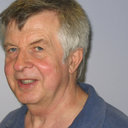New-onset obsessive-compulsive disorder following neurosurgery for medication-refractory seizure disorder.
Mots clés
Abstrait
A 31-year-old man with medication-refractory seizures in the context of right mesial temporal lobe sclerosis and right occipital encephalomalacia is described. He experienced the onset of obsessive-compulsive symptoms following resection of the right hippocampus and right occipital pole. Semistructured psychiatric evaluation was conducted 16 months after surgery. Results indicated that he fulfilled diagnostic criteria for obsessive-compulsive disorder (OCD) and that he was not depressed at the time of the evaluation. Total score on the Yale-Brown Obsessive Compulsive Scale was 24, indicating moderate symptom severity, and he had prominent symptoms related to contamination, washing, checking, repeating rituals, and ordering. He also reported significant problems with "not just right" experiences. Treatment with sertraline resulted in apathy. To our knowledge, the present case is only the fourth reported of de novo onset OCD following neurosurgery for seizure disorder, and the first in a patient without either preexisting obsessive traits or an OCD spectrum disorder.


